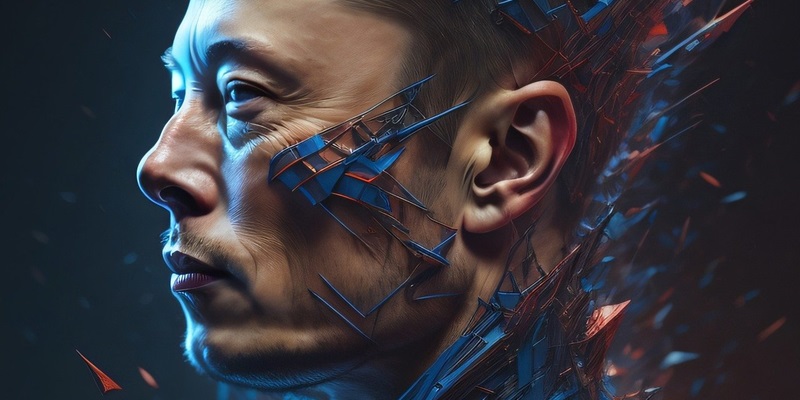In a move that highlights his continued influence in the tech industry, Elon Musk is looking to raise funding for his AI company, xAI. With a goal of 1/44th of Twitter, Musk aims to push the boundaries of artificial intelligence with their latest project, Grok. The company has already secured approximately $135 million from four unnamed investors, demonstrating early confidence in xAI’s vision.
Current funding status
Musk’s ability to attract significant investment is evident with xAI’s impressive $135 million capital raise. Although the identities of the investors remain undisclosed, their support suggests a strong belief in the potential of xAI and its innovative approach to AI development.
AI’s Project: Grok
Grok is xAI’s ambitious response to OpenAI’s ChatGPT, Google’s Bard, and Anthropic’s Claude. Positioned as a next-generation AI language model, Grok aims to stand out by comfortably tackling unconventional and “spicy” questions often avoided by other AI bots. Musk anticipates giving Grok a rebellious streak that fosters a distinct personality and encourages engaging conversations.
Unique Features of Grok
Setting its sights on carving a unique place in the AI landscape, Grok aims to differentiate itself from other AI systems in multiple ways. The bot’s inclination to tackle “spicy” questions sets it apart from its competitors, promising users an AI experience unrestrained by boundaries. Musk’s vision for Grok is to foster an open and honest dialogue, even on sensitive topics, leading to more nuanced and inclusive conversations.
Development Progress and Release
Despite being in development for just two months, Grok is on track to release a beta version. A select few lucky enough to be X Premium+ subscribers will have exclusive access to experience the capabilities of this cutting-edge AI system. This bold move demonstrates xAI’s commitment to delivering its innovative AI technology to early adopters and further refining Grok’s capabilities based on user feedback.
Real-time knowledge updates
One of the key selling points of Grok is its ability to update in real-time using the vast knowledge shared on X. This exclusive feature will empower users with the most up-to-date information, reinforcing the bot’s relevancy and accuracy. However, a significant challenge for xAI will be to ensure Grok can navigate the fine line between authentic news and rampant misinformation that can permeate online platforms.
Musk’s relationship with OpenAI
As a co-founder of OpenAI, Musk maintains a complex relationship with the organization. His departure from the board in 2018 raised eyebrows and sparked speculation about his intentions. Musk’s subsequent criticism of OpenAI, particularly his concerns surrounding the firing and rehiring of CEO Sam Altman in November, indicate a divergence in strategic vision and values.
Funding Challenges
Securing an additional $865 million for xAI represents no small feat. However, with Musk’s unquestionable influence and reputation as one of the most powerful individuals in the tech industry, he is well positioned to make the fundraising challenge seem surmountable. Musk’s visionary leadership, combined with the early success in attracting funds, asserts his commitment and confidence in xAI’s potential and the transformative impact Grok could have in the AI landscape.
Elon Musk’s xAI is making waves in the AI industry with its highly anticipated project, Grok. With $135 million already raised from undisclosed investors, Musk’s ambitions for xAI and Grok are gaining momentum. As development progresses and the beta version of Grok nears release, the AI community eagerly anticipates the unveiling of this rebellious and boundary-pushing AI system. With its unique ability to update in real-time using the knowledge shared on X, Grok aims to redefine AI conversations and challenge conventional norms in the evolving AI landscape. Only time will tell if Musk’s bold vision for xAI and Grok will come to fruition, but one thing remains clear: Elon Musk is unafraid to push boundaries and disrupt the status quo, forging a path towards a more intellectually engaging AI future.

